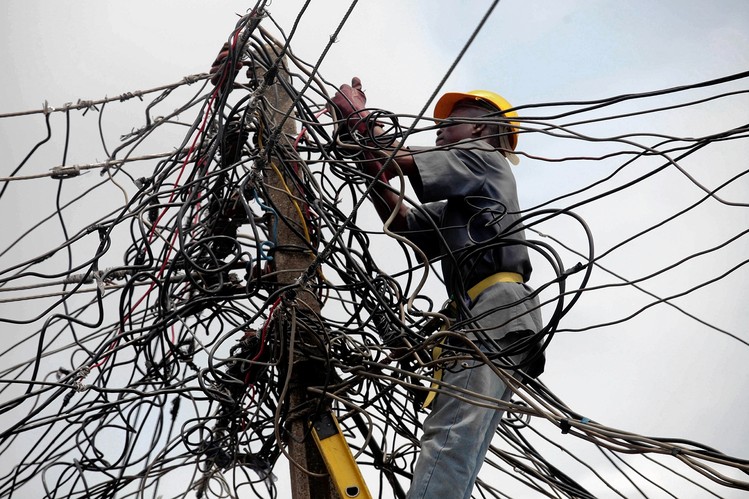Some 20-year-old electrical equipment and networks, as well as the poor adherence to laid out standards by power sector operators, are key factors worsening the Nigerian power supply situation, the Managing Director of the Nigerian Electricity Management Services Agency (NEMSA), Engr. Peter Ewesor has said.
Engr. Ewesor, who is also the Chief Electrical Inspector of the Federation (CEIF), stated this at a conference of certified engineers by the Nigerian Society of Engineers (NSE), Ikeja branch of Lagos State, recently.
According to him, the ongoing power sector reforms to standardise power equipment to boost power supply will end the incessant power outages and restore regular supply of electricity to consumers.
“Our responsibility as contained in the act that establishes NEMSA, is to certify power equipment and engineers handling power projects, because substandard equipment and incompetence in the handling of electrical projects has always been the major challenge in the power sector, especially in Nigeria where nobody wants to do the right thing,” he stated.
Ewesor said some of the electrical equipment in use were installed 20 years ago and warned that excess load on the 33 kilovolts (kV) line will lead to the total collapse of the system.
“This line is meant to transmit power to injection sub-stations, but the standard has been abused. Instead, a feeder unit should be provided if consumers, especially manufacturing industries, must be connected to the 33kV line, which is a conveyor of power to injection substations,” he said.
The NEMSA head insisted that standard network practice, design and operations must be adhered to in the practice of electrical engineering, especially as it concerned the national grid, which if allowed to collapse would lead to a total blackout.

Ewesor, whose agency enforces technical standards and compliance in the Nigerian Electricity Supply Industry (NESI), lamented the lack of cohesion amongst major actors in the industry, which allows uncertified contractors and engineers to infiltrate the power sector, and introduce substandard works that caused havoc and fire outbreaks, leading to the destruction of lives and property.
The NEMSA helmsman, who also spoke about metering, said the federal government is distributing one million meters to electricity consumers through the 11 Distribution Companies (DisCos). He said the DisCos are to deliver four million meters, all under the National Mass Metering Programme and the Meter Asset Provider (MAP) regulation to address the meter constraint and end estimated billing complaints.
On inter-agency and international collaboration, NEMSA had in March this year secured accreditation from the Nigeria National Accreditation System (NiNAS) established to provide accreditation for Conformity Assessment Bodies with traceability to international standards.
Also recently, the Federal Executive Council (FEC) approved the Nigeria National Quality Policy. Among other requirements of this policy, conformity assessment bodies are required to secure accreditation in relevant standards related to their services, processes and operations.
NEMSA has four accredited standards, ISO17025, ISO17020, ISO17024, and ISO17065, making it the first Nigerian agency to submit all its processes to international accreditation, Ewesor explained.
Still harping on the power sector reforms process, NEMSA said President Muhammadu Buhari’s administration has invested N1.5 trillion as interventions through the Central Bank of Nigeria (CBN) in two years as of June 2021.
These interventions are to increase generation to 11,000 megawatts (MW) by 2022 and 25,000MW by 2025 in partnership with Siemens through the Siemens Presidential Power Initiative (PPI). This is also to help utilise idle energy in Nigeria as in other African countries, including Togo, Niger, Benin and Burkina Faso which are pushing to buy Nigeria’s unused energy. This will be through the West African Power Pool (WAPP) North Core power transmission line project which could be ready by 2022.
For Nigerian citizens, Engr. Ewesor has noted that with collaborations with stakeholders, NEMSA will further push operators to reform their networks while toughening enforcement to ensure they adhere to standards and deliver quality and sustained electricity to Nigerians.

 Join Daily Trust WhatsApp Community For Quick Access To News and Happenings Around You.
Join Daily Trust WhatsApp Community For Quick Access To News and Happenings Around You.


